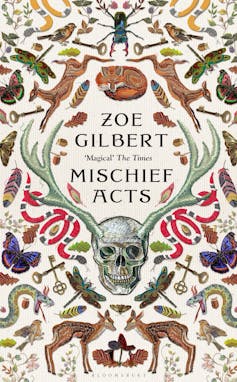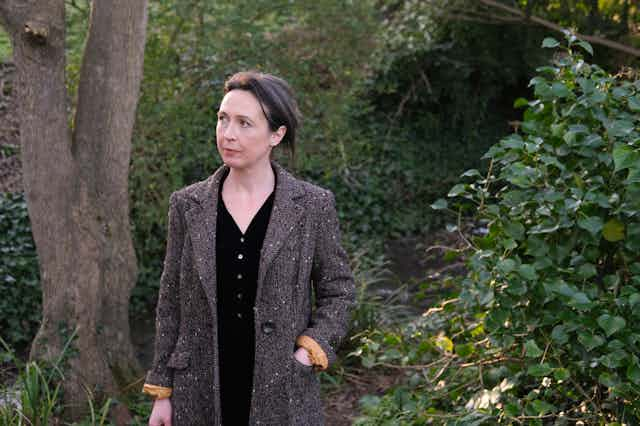Every culture, by and large, has its myths of the natural world. There are myths of the forests, myths of the seas and rivers, myths of the deserts, mountains and jungles. Some of these myths, like some of the ancient creation stories, predate culture as we currently understand it.
They are stories through which we, the dominant species on this planet, negotiate our relationship with the plants and animals we share this space with. They lend the natural world a sense of enchantment – a sense that the world is a place of magic and mystery.
But in a world in which these myths have been supplanted by new myths of human progress, have we become disenchanted with our planet? And if so, how pertinent, in the face of the climate catastrophe, might a process of re-enchantment become?
Zoe Gilbert’s Mischief Acts is a special kind of novel. Through successive chapters, blending disparate narratives with folklore and song, Gilbert unfolds this process of enchantment, disenchantment and re-enchantment over several centuries of human history.
The characters of Mischief Acts are the legends of natural mythology – Herne the Hunter, Puck, Robin Goodfellow – who each play their ambivalent and often cruel games with humanity across the generations.
Drawing upon our myths of the natural world, Gilbert traces a line from the days of forest-dwelling and feudalism right through the Industrial Revolution, the modern information age and into our uncertain future. Each twist of the story feeds into a continuum that charts our relationship with our environment through the myths that have helped us understand and communicate that relationship. My feeling is that at the present time that could not be more pertinent.
Reclaiming lost language
In many ways, Mischief Acts feels like an antidote to the alienation of our species from its natural surroundings.
While words such as “acorns”, “blackberries” and “conkers” are removed from the Oxford Junior Dictionary – to be replaced with ‘analogue’, ‘broadband’ and ‘cut-and-paste’ – so are the myths which have been so pivotal in connecting us to our landscape.
In Britain, this feels especially acute. How many Britons can tell you what a boggart is, or where you might see a will-o’-the-wisp? Who can tell you about standing stones or the Green Man?

While the Thors, Odins and Lokis of Norse mythology enjoy a resurgence of exposure through popular cinema, and while stories about King Arthur and Robin Hood continue to connect Britons to their own mythology, figures like Herne the Hunter have largely passed out of the cultural conciousness.
The importance of keeping local mythologies alive lies in the fact that these stories can help us understand our local environment beyond its usefulness for human beings, whether as a resource to be consumed, a beauty to be admired or an obstacle to be removed – a point Mischief Acts makes eloquently.
The novel reconnects us with a centuries-old story of an environment that is bigger than us, older than us and at whose whim we are ultimately dependent on for our survival. With this story comes the proviso that nature is something to be both respected and feared, much like the ancient deities who have also been partially subsumed by new myths of human progress. Gilbert’s reinvention of these myths is actually a process of revitalisation, a reaffirmation of respect and fear in our attitude to the natural world.
Mischief
To a certain extent, myths are the stories we tell ourselves about ourselves. But we do not live on this planet alone. Our story is part of a much wider narrative, one to which our species is perilously close to becoming an early footnote.
In Mischief Acts, Gilbert shows us how that story has been written and rewritten for centuries, and how its real composer is not us but the world around us.
The motif of the trickster is one of the most enduring in world mythology. It is a character who knows something we don’t, and has no concern for our established patterns of behaviour.
While nature is beautiful and terrifying and unimaginably complex, it is also a trickster. It has no sympathy for our mistakes, no sense of human morality or need. The real mischief of Gilbert’s Mischief Acts is the eternal mischief that makes human beings the playthings of forces we do not understand.
It is the mischief that will drop a tree on a logger’s head or drown a whaler in the Arctic. It is mischief without human compassion, the mischief that may shortly create more than a hundred million climate refugees without a second thought.
And this is why Mischief Acts is such an important novel for our times. Not just because we might benefit from a reconnection with our natural myths, but because we are a hair’s-breadth from doing ourselves the greatest mischief of all.

